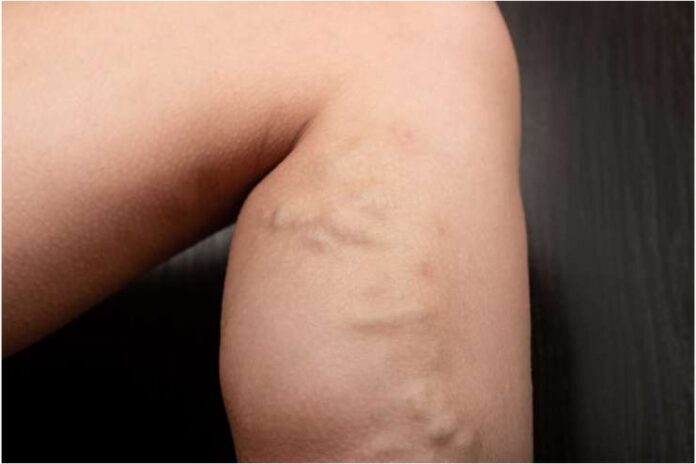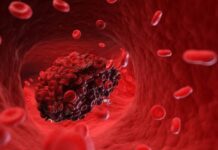Affiliate Disclaimer
Some links in this article are affiliate links. We may earn a small commission if you make a purchase through these links, at no extra cost to you. We only recommend products we find useful to our readersBlood clots in the legs might not seem like much, but untreated, they can become fatal. If left untreated, clots can progress to deep vein thrombosis (DVT) or even reach the lungs, where they can result in a pulmonary embolism, all of which are extremely dangerous for one’s health.
Many people are looking for safer, natural alternatives to traditional medicines, which frequently have adverse side effects.
This article will walk you through nine effective natural treatments that can help prevent blood clots and improve your legs’ general health without any adverse side effects. Find out how the natural remedies might offer the solace you’ve been seeking.
What are Blood Clots in the Legs?
Blood clots are potentially life-threatening clumps that form in the legs due to the thickening and solidification of the blood. Several factors, such as extended immobility, dehydration, or injury to the leg, are frequently responsible for the formation of these clots.
The risk of clot formation increases because blood flow slows down when one remains in one position for an extended period, such as when one is bedridden or sitting for an extended period on a trip. If one is dehydrated, their blood may become thicker, increasing the likelihood of clotting.
What Causes Blood Clot in Legs?
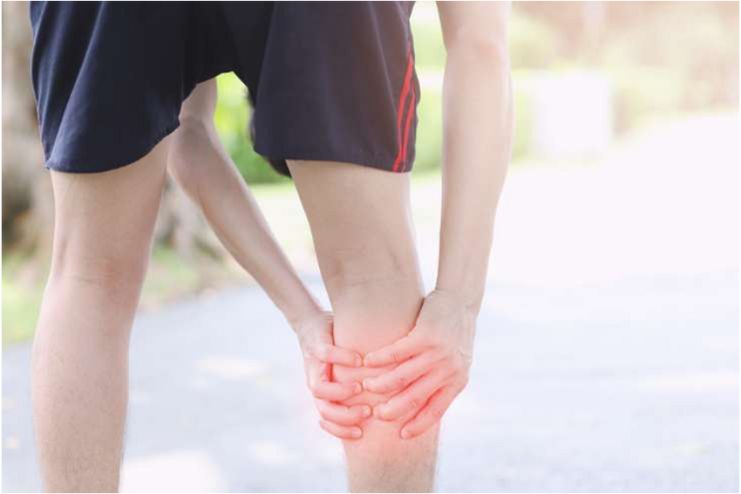
A blood clot in the legs can happen for several reasons, so it’s essential to pay attention to any signs of a clot and treat it early before it becomes severe. Since there are many possible causes, we’ve grouped them into special and common causes to make them easier for you to understand.
1. Common Causes
The list of common causes for blood clots in the leg include:
- Prolonged sitting during bus and flight journeys can restrict blood flow in the body, potentially leading to blood clots in the legs.
- Complete immobility due to any trauma or accident
- Obesity or uncontrolled weight can also contribute to the formation of blood clots.
- Usage of estrogen-induced birth control pills
- Aging is yet another significant contributing factor to this.
- Pregnancy or even postnatal stages sometimes show blood clot symptoms in the legs.
2. Chronic and Special Causes
Some of the primary chronic and severe causes of DVT include:
- Any damage or impact to the blood vessels in the legs often causes interior lesions, which can lead to the formation of a blood clot.
- There are irregularities in blood flow pressure throughout the body. Partial restriction or complete blockage in blood circulation often results in the formation of clots.
- Hypercoagulability is another medical condition where the blood is more likely to clot than usual.
- Vasculitis or Varicose veins often alter the blood flow in and out of the veins in the body.
Signs and Symptoms of Blood Clot in Legs
Usually, a DVT (Deep Vein Thrombosis) develops in the veins in your arms or legs. Up to 30% of DVT patients have no symptoms, though occasionally, there are many minor ones that are not cause for alarm. Acute DVT symptoms include the following:
- Swelling in your arm or leg, occasionally co-occurring.
- Your arm or leg may only feel uncomfortable or painful when you stand or walk.
- Your arm or leg’s swollen or painful part may be warmer than usual.
- Skin that is stained or red.
- The veins close to the surface of your skin are likely more prominent than usual.
- Bad headache
Some patients are unaware that they have a DVT until the clot passes from their arm or leg to their lungs. Acute PE (Pulmonary Embolism) symptoms include lightheadedness, fainting, coughing blood, chest pain, and shortness of breath. If you experience any DVT symptoms, you should contact your doctor or visit the emergency department immediately.
How to Treat Blood Clot in Leg?
Several treatments are available that have successfully healed the condition. The key is to recognize the symptoms early and get the proper treatment. In addition to conventional medical treatments, natural remedies for blood clots can be very effective without causing side effects.
If you suspect a blood clot, it’s essential to consult with your general physician first to confirm whether DVT is present. Once diagnosed, your doctor will refer you to a specialist, like a hematologist, who can adequately treat thrombosis.
1. Blood Thinners – Traditional Treatment
Blood clots are primarily formed either due to prohibited blood circulation or coagulation of the blood in certain areas. Doctors quickly treat this condition with anti-coagulants, also known as blood thinners. When administering the medicine, the first dosage, often intravenously, thins out the blood within minutes of injection. The second dosage is oral, which takes around five days to administer its effects on the body.
2. Compression Stockings, or Support Stockings
These unique knee socks lessen blood clotting in the legs and reduce swelling. Wear them on your legs from your feet to roughly knee level. If you have DVT, you should wear these stockings during the day for a few years.
3. Treatment with Clot Busters
When other medications aren’t working or for more severe forms of PE or DVT, these drugs are utilized. A catheter or tube is inserted straight into the clot to administer clot busters. They are often reserved for patients with significant blood clots since they can result in severe bleeding.
Home Remedies Without Side Effects
Home remedies are one of the safest and most effective ways to treat health problems. There are several natural remedies for blood clots in the legs that can help treat the issue from the root. If you’re looking for simple yet effective ways to relieve the pain in your leg caused by a blood clot, you’re in the right place. Here are some of the best home treatments for blood clots in the legs:
1. Exercise

Exercise can help improve blood flow in the body, preventing blood clots. Frequent exercise can also help break down the pre-existing blood clots. Doctors advise walking, cycling, and swimming as low-impact exercises since they are less taxing on the body.
2. Ginger
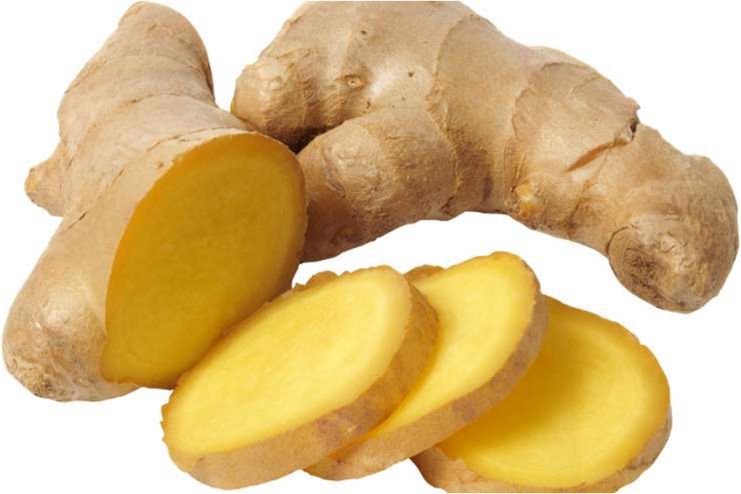
Aside from being a wonderful spice, ginger is an amazing contributor to the treatment of several health issues. Much like the mode of action of aspirin, ginger helps thin the blood, which prevents it from either coagulating or clotting. It smoothens out the circulation of the blood without any side effects.
Experts suggest either chewing ginger on its own or enjoying its benefits by mixing it with tea, which can have beneficial effects on the body.
3. Garlic
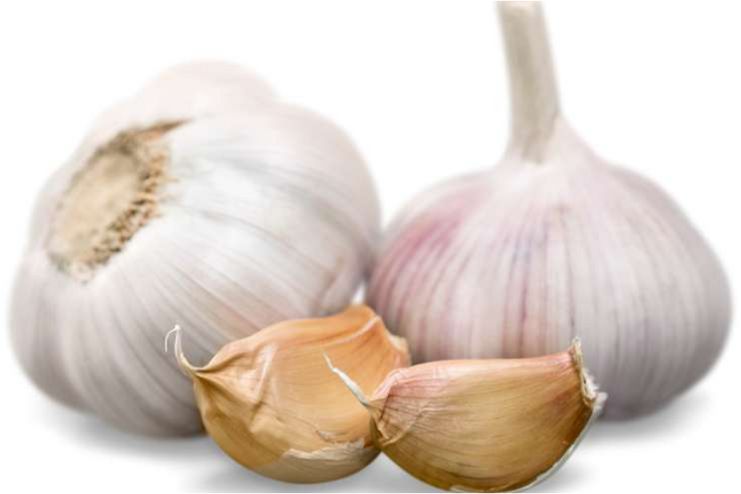
If you didn’t already know, garlic is well known for promoting easy blood circulation in the body. This is one of the primary preventive measures for blood clots in the legs. Garlic is rich in anti-thrombotic properties, which help prevent unnecessary thrombosis in the body, which causes ghastly blood clots that are sometimes even life-threatening if not treated at the right time.
Experts suggest eating one clove of raw garlic every morning to imbibe its benefits for health.
4. Cayenne Pepper
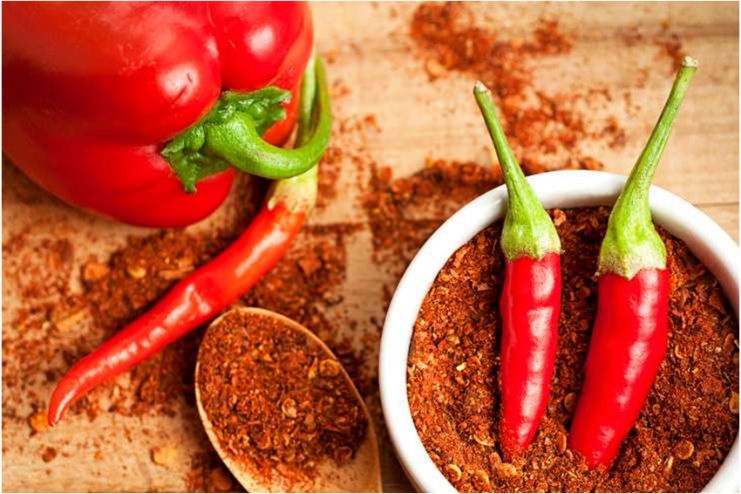
Reports suggest that cayenne peppers significantly impact people suffering from DVT. They help by thinning out the blood, and the constituent capsaicin helps in smoother blood circulation. That is not all, though. They further aid in maintaining blood pressure and prevent the accumulation of cholesterol in the blood, which is often the primary reason for the formation of blood clots in the leg.
5. Turmeric
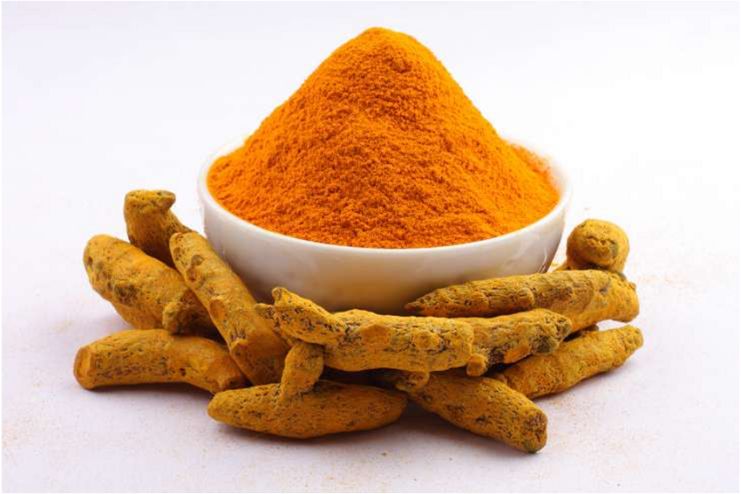
Turmeric is one of the pivotal ingredients in the field of alternative medicines. It has proven its significance time and time again, and the same is handed down to the treatment of blood clots in the leg as well. Turmeric has anti-inflammatory and anti-coagulating properties, which help ensure that the blood stays in a flowing consistency and doesn’t coagulate. The compound curcumin, present in turmeric, has profound anti-coagulating properties, which help in unrestricted blood circulation.
6.Omega-3 Fatty Acid

Essential fats called omega-3 fatty acids can help prevent blood clots. Fatty fish such as salmon, tuna, and mackerel contain them. Omega-3 pills are also available for those who don’t eat enough fatty fish.
7. Water

Drinking a lot of water can help dissolve blood clots since it helps maintain a thin and smooth flow of blood throughout the body. To reduce the risk of developing blood clots, it is recommended that individuals consume a minimum of eight glasses of water daily.
8. Vitamin E

While you definitely want to avoid Vitamin K if you suffer from hypercoagulation of the blood, Vitamin E can, on the other hand, be your best friend. Vitamin E-rich foods like almonds, avocado, walnuts, spinach, kiwis, etc., have a non-coagulating property, which helps them with the risk factors for blood clots in the legs. It is an excellent home remedy for people suffering from Deep Vein Thrombosis.
Diet for Blood Clots in Legs Treatment
Diet plays one of the most important parts in treating blood clots in the leg. Primarily improper diet and an unhealthy lifestyle hamper our overall well-being. Having a set and healthy diet incorporating some of the compounds mentioned above can help prevent the onslaught of events that come along with blood clotting in the legs.
Some of the food and diet plans that can help prevent vein thrombosis include:
- A sip of red wine from time to time. Is this surprising? Several studies and researchers have shown that flavonoids in red wine help prevent blood clots (R). It is best to consume it from time to time in permissible amounts to help better the situation of blood clot in the leg.
- The phenols found in olive oil profoundly impact eliminating blood clots in the body. This aids by minimizing the blood clot promoter in the body, ensuring smooth and unaffected blood circulation.
- The American Heart Association advises avoiding sweets, trans fats, and too much salt, contributing to inflammation.
- Red meat, deep-fried foods, burgers, and diets high in cholesterol are examples of fatty foods contributing to inflammation. These foods cause the body to undergo an inflammatory process, putting patients at further risk for blood clots.
Blood Clot in Legs During Pregnancy
Blood clots during pregnancy might recur if you don’t administer suitable measures. It is not always the blood clot that causes the problem; it is the persistence and location. A blood clot in the legs during pregnancy mainly affects one of the legs, which is either swollen or painful to move. There are often chances that the clot might travel to the vital organs and obstruct the proper functioning of it, which is fatal not just for the mother but for the baby as well.
There are also chances of blood clots forming in the placenta, which can be very threatening to the baby’s life. If there are any visible signs of thrombosis in the body while you are pregnant, it is always advised to get checked thoroughly. Otherwise, there are chances of possible obstruction in the blood circulation, which can be fatal to a pregnant woman’s and her baby’s health.
Conclusion
Treating blood clots in the legs holistically can significantly impact how quickly you recover. Incorporating lifestyle modifications and natural therapies might speed up your recovery process and avert further issues, even though medical guidance and treatment are crucial. Always remember to use these natural remedies in addition to, not instead of, medical care. Collaborating with your physician can get the most significant outcomes for your general and leg health.
-
June 2018Written by Somapika D
-
Dec 2024Edited by Ankita
References
- https://www.pennmedicine.org/for-patients-and-visitors/patient-information/conditions-treated-a-to-z/deep-vein-thrombosis
- https://www.mayoclinic.org/diseases-conditions/deep-vein-thrombosis/symptoms-causes/syc-20352557
- https://my.clevelandclinic.org/health/diseases/16911-deep-vein-thrombosis-dvt
- https://www.mayoclinic.org/diseases-conditions/deep-vein-thrombosis/diagnosis-treatment/drc-20352563
- https://www.hopkinsmedicine.org/health/treatment-tests-and-therapies/blood-clot-treatment
- https://www.healthline.com/health/how-to-dissolve-blood-clots-in-legs#how-long-does-treatment-take
- https://www.healthline.com/health/dvt/home-treatment#takeaway
- https://www.heart.org/en/healthy-living/healthy-eating/eat-smart/nutrition-basics/aha-diet-and-lifestyle-recommendations
- https://www.everydayhealth.com/dvt-pictures/foods-to-fight-dvt.aspx
- https://www.goodrx.com/conditions/deep-vein-thrombosis/foods-prevent-blood-clots
- https://www.nhs.uk/pregnancy/related-conditions/complications/deep-vein-thrombosis
- https://www.healthline.com/health/dvt-in-pregnancy
In this Article
















